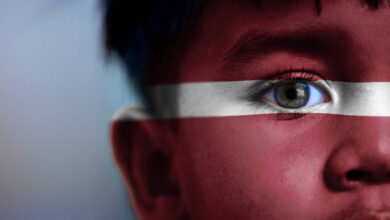10 Things You Are Not Allowed to Do in Angola

Angola, a country rich in culture, history, and natural beauty, has its own set of laws and customs that visitors must respect. Understanding these regulations can enhance your travel experience and help avoid misunderstandings. Here are ten things you should not do while visiting Angola.
1. Disrespect Cultural Norms
Angola has a diverse culture with deep-rooted traditions. Disrespecting local customs, such as failing to greet elders or not participating in local ceremonies, is frowned upon. Visitors should make an effort to learn about and respect Angolan traditions.
2. Photograph Military Installations and Government Buildings
Taking photographs of military installations, police stations, or government buildings is prohibited. Such actions can be interpreted as espionage and may lead to legal consequences. Always seek permission before photographing any government-related structures.
3. Use Drugs
Angola has strict anti-drug laws. Possession, use, or trafficking of illegal drugs can lead to severe penalties, including lengthy prison sentences. It is advisable to avoid any involvement with drugs while in the country.
4. Engage in Public Displays of Affection
While Angola is generally tolerant, public displays of affection, especially between same-sex couples, may attract negative attention. It’s best to be discreet and avoid overt gestures in public spaces.
5. Disrespect Local Wildlife and Natural Reserves
Angola is home to diverse wildlife and natural reserves. Engaging in activities that harm the environment, such as poaching or littering, is illegal and heavily punished. Respecting nature is crucial to maintaining Angola’s biodiversity.
6. Ignore Health Regulations
Before traveling to Angola, you must comply with health regulations, including vaccinations for diseases like yellow fever. Failing to provide proof of vaccination may result in denial of entry at border points. Always stay updated on health advisories.
7. Participate in Political Protests
Political demonstrations are closely monitored in Angola. Participating in protests or public gatherings can lead to arrests and legal repercussions. It’s advisable to stay informed about the political climate and avoid any involvement in political activities.
8. Dress Inappropriately
While Angola is becoming more modernized, conservative dress codes are still appreciated, particularly in rural areas and religious sites. Wearing revealing clothing may be seen as disrespectful, so it’s best to opt for modest attire when in public.
9. Drink Alcohol Publicly
Although alcohol is available in Angola, consuming it in public spaces, especially in rural areas, is often viewed unfavorably. It’s best to enjoy alcoholic beverages in private settings or licensed establishments.
10. Ignore Local Languages
While Portuguese is the official language, Angola is home to several indigenous languages. Ignoring these languages or assuming that everyone speaks Portuguese can come off as disrespectful. Learning a few basic phrases in local languages can enhance interactions and show respect for the culture.
Understanding and respecting these regulations will help ensure a positive experience while exploring the beauty of Angola. By adhering to local customs and laws, visitors can foster goodwill and enjoy the richness of Angolan culture.




